Sports International

How does sports diplomacy contribute to international relations ?
Sports diplomacy is a form of soft power that uses sports events and activities to foster relationships between nations. It contributes to international relations by enhancing mutual understanding, promoting economic cooperation, and promoting peace and security. Sports diplomacy promotes cultural exchange and builds trust between nations. It also attracts investment, creates job opportunities, reduces tensions, and enhances security cooperation. Overall, sports diplomacy plays a crucial role in building stronger relationships between nations.

How do cultural exchanges through sports influence international relations ?
Cultural exchanges through sports have a significant impact on international relations by promoting mutual understanding, enhancing diplomatic relations, promoting peace and unity, providing economic and social benefits, increasing globalization, and presenting potential challenges such as nationalism and commercialization concerns. These exchanges foster understanding, build bridges between nations, and contribute to a greater sense of global community.
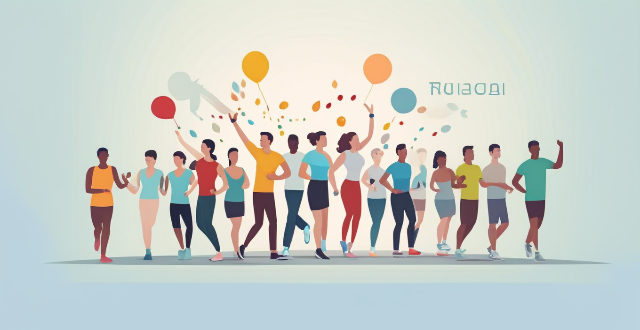
What role do international sports organizations play in fostering global cooperation ?
International sports organizations are crucial for global cooperation, promoting peace, cultural exchange, economic development, health, gender equality, environmental sustainability, and humanitarian aid.

How do sports boycotts or bans reflect on international relations ?
Sports boycotts or bans are often used as a political tool to express disapproval or to exert pressure on another country. These actions can have significant implications for international relations, as they can be seen as a form of diplomatic action. This essay explores how sports boycotts or bans reflect on international relations and the potential consequences that may arise from such actions. Sports boycotts or bans are often used as a form of protest against perceived injustices or violations of human rights, political disagreements, or other issues that may affect international relations. Historical examples include the African nations' boycott of the 1972 Summer Olympics due to Rhodesia's inclusion, the US-led boycott of the 1980 Summer Olympics in Moscow to protest the Soviet Union's invasion of Afghanistan, and calls for sports boycotts against China over its treatment of Uighur Muslims in Xinjiang province. Sports boycotts or bans can create diplomatic tensions between countries, leading to further escalation of conflicts. They can also have economic consequences for both the host country and participating athletes, as well as limit opportunities for cultural exchange and global unity. As such, it is important for countries to carefully consider the potential consequences before engaging in sports boycotts or bans as a form of political protest.

What is the role of international sports organizations in regulating and standardizing sports in a global context ?
The Role of International Sports Organizations in Regulating and Standardizing Sports Globally International sports organizations are crucial for regulating and standardizing sports globally. They develop rules, enforce anti-doping policies, protect athletes' rights, and promote ethical behavior. These organizations ensure fair competition, create a safe environment for athletes, and maintain the integrity of sports worldwide.

What role do international sports organizations play in promoting peace through sport ?
International sports organizations contribute significantly to promoting peace through various initiatives. These include building bridges and enhancing diplomatic relations by promoting diplomacy and cultural exchange, providing platforms for youth development through empowerment and creating opportunities, advocating for gender equality and inclusivity, contributing to humanitarian efforts like disaster relief and peace missions, and educating about peace and conflict resolution through awareness campaigns and partnerships with peace organizations.
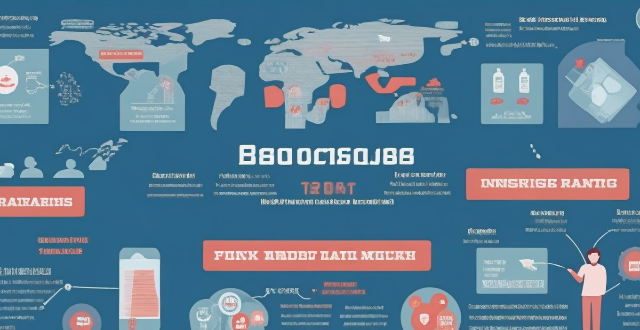
How do political tensions affect the participation of countries in international sports competitions ?
The article discusses how political tensions can impact countries' participation in international sports competitions by affecting travel restrictions, safety concerns, boycotts and protests, sponsorship and funding issues, diplomatic pressure, image and reputation concerns, reduced attendance and viewership, security measures, and lost cultural exchange opportunities. It emphasizes the need to find solutions that allow sports to continue serving as a unifying force in our global community.

What are the ethical considerations when sports are used in international diplomacy ?
Sports have been used as a tool for international diplomacy, but there are ethical considerations to take into account. These include respecting cultural differences, promoting fairness and equity, avoiding political manipulation, and protecting athletes' rights. By doing so, sports can continue to serve as a positive force for building bridges between nations.

How do issues like doping scandals affect the reputation of countries in international sports ?
Doping scandals have a negative impact on the reputation of countries in international sports, including loss of credibility, negative media coverage, reduced participation in international competitions, financial consequences, and damage to athlete reputations.
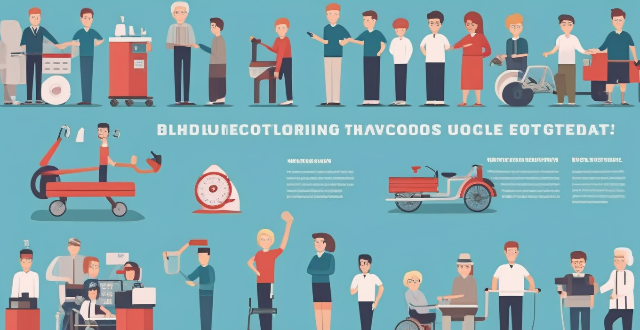
How can sports diplomacy be leveraged to improve relations between nations ?
Sports diplomacy is a powerful tool for improving international relations by using sports as a universal language to break down barriers, promote peace, and foster understanding. This can be achieved through organizing international events and cultural exchange programs, supporting youth exchanges and community-based initiatives, involving influential sports figures in diplomatic missions, and utilizing media and public platforms to engage wider audiences. By leveraging the power of sports, nations can improve their relationships in a constructive and engaging manner, serving as a soft power strategy with far-reaching benefits.

What are some examples of successful disability sports organizations or events around the world ?
Disability sports have been gaining popularity and recognition worldwide, with many organizations and events showcasing the talent and determination of athletes with disabilities. Here are some examples of successful disability sports organizations and events around the world: 1. Paralympic Games: An international multi-sport event for athletes with physical and intellectual disabilities, held immediately after the Olympic Games in the same host city. 2. Special Olympics World Games: A global event for athletes with intellectual disabilities, offering competition in various sports such as swimming, athletics, and basketball. 3. International Wheelchair Basketball Federation (IWBF): The governing body for wheelchair basketball worldwide, organizing international competitions and promoting the development of wheelchair basketball across different regions. 4. Cerebral Palsy Football World Cup: A biennial international football tournament for players with cerebral palsy, providing an opportunity for these athletes to showcase their skills and promote awareness about cerebral palsy. 5. International Blind Sports Association (IBSA): Dedicated to promoting sports for visually impaired athletes, organizing world championships and other events in various sports such as goalball, judo, and swimming. 6. World Deaf Volleyball Championships: An international competition for deaf volleyball players, promoting the development of deaf sports and providing a platform for deaf athletes to showcase their talent and compete at the highest level. 7. World Dwarf Games: A multi-sport event specifically designed for individuals with dwarfism, offering a range of sports such as swimming, track and field, and powerlifting, providing opportunities for athletes with dwarfism to compete and showcase their abilities.

How does the globalization of sports affect national identities and patriotism ?
The globalization of sports has had a significant impact on national identities and patriotism, with both positive and negative effects. On the positive side, it has increased exposure to different cultures, provided opportunities for international collaboration, and brought economic benefits to host countries. However, it has also led to concerns about diluted national identity, commercialization and corruption in sports, and unequal access to resources between developed and developing nations. Balancing these aspects will be crucial in ensuring that sports continue to unite rather than divide us on a global scale.

In what ways does sports culture influence political discourse and international relations ?
The text discusses how sports culture significantly impacts political discourse and international relations. It highlights various ways this influence manifests, including promoting diplomacy and peace, fueling nationalism and identity, driving economic development, advocating for social issues, and shaping public opinion through media representation. The article also mentions specific examples such as "Ping-Pong Diplomacy," Olympic Truce, and the involvement of sports figures in peace agreements. It underscores the role of sports in cultural exchange, global marketplace activities, brand promotion, and environmental concerns. Additionally, it touches upon the use of sports for propaganda purposes, controversies like doping scandals, and their effects on international perceptions. Overall, the text emphasizes that sports culture is a potent force intertwined with global dynamics, reflecting and shaping interactions between nations.

How do national sports teams represent their country's image on the international stage ?
National sports teams play a crucial role in representing their country's image on the international stage. They are seen as ambassadors of their nation, showcasing values, culture, and spirit through their performances and behavior. Athletes inspire national pride and promote cultural exchange, uphold ethical standards, and embody national spirit. Successful performances enhance prestige, while handling setbacks with grace demonstrates resilience. Supporting national sports teams fosters national identity and pride globally.

Can international students apply for scholarships ?
International students can apply for various scholarships offered by universities and organizations to offset the cost of tuition, books, and living expenses. These include merit-based scholarships awarded based on academic or leadership skills, need-based scholarships considering financial situation, athletic scholarships, diversity scholarships, and first-generation college student scholarships. External organizations like the Fulbright Program and Rotary International also provide opportunities. To apply, research available scholarships, review requirements, prepare application materials, apply early and regularly, and seek additional funding sources.

In what ways can athletes serve as ambassadors for their countries in international relations ?
Athletes have the power to unite people from different countries and cultures through their performances and achievements. They can serve as ambassadors for their countries in international relations by promoting peace, understanding, and goodwill. Some ways athletes can fulfill this role include participating in international competitions, organizing charity events, learning about other cultures, teaching sports to children abroad, speaking out against injustice, and supporting environmental sustainability. By using their influence and platform, athletes can make a positive impact on the world and inspire others to do the same.
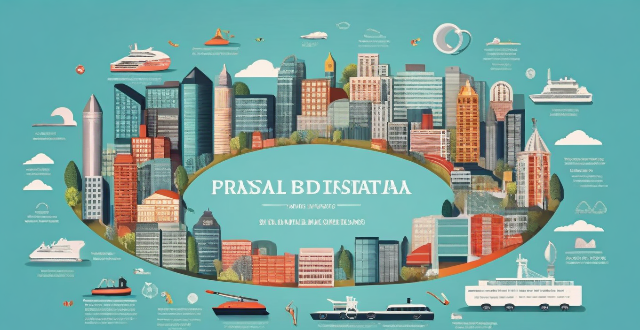
What role does international competition play in promoting globalization through sports ?
The text discusses the role of international competition in promoting globalization through sports, highlighting its impact on cultural exchange, building international relations, encouraging global citizenship, driving innovation and development, and facilitating education and empowerment. It emphasizes how these events bring together diverse individuals and promote mutual understanding, cooperation, and friendship, ultimately contributing to a more interconnected world.

What are the key factors to consider when choosing an international school or program ?
When selecting an international school or program, consider factorsWhen selecting an international school or program, consider factorsation and reputation, curriculum and extracurricular activities and opportunities for internships or study abroad, cultural diversity and inclusivity, location and facilities, and cost and financial aid options. These considerations can help ensure that the chosen institution aligns with your academic goals and personal preferences, fostering both academic success and personal growth.
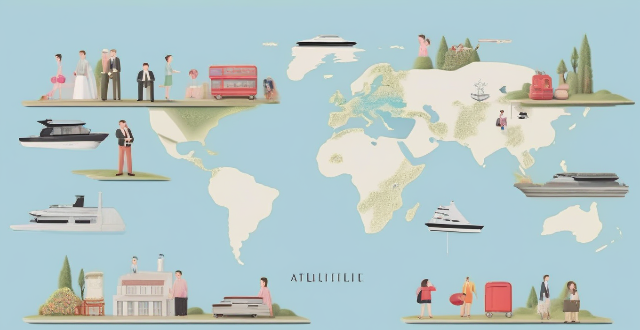
What is the impact of sports tourism on international relations and economy ?
Sports tourism, involving travel for sports events, significantly impacts the global tourism industry. It not only boosts the economy through increased revenue and job opportunities but also enhances international relations by promoting cultural exchange and diplomatic engagement. Sports events serve as platforms for peaceful competition, showcasing a country's soft power and fostering international collaboration.

How can universities improve their support services for international students ?
Universities can enhance support for international students by offering cultural orientation, language training, academic tutoring, writing assistance, social integration activities, career development, and internship opportunities.

How do international sports competitions, such as the Olympics, showcase multiculturalism ?
The text discusses how international sports competitions like the Olympics showcase multiculturalism. The Parade of Nations, cultural exchange in the Olympic Village, opening and closing ceremonies, medal ceremonies, sporting attire and equipment, food and beverage offerings, and outreach programs are all ways in which these events highlight diversity and promote understanding among different cultures. Overall, the Olympics serve as a platform for celebrating global identities and fostering unity through sport.

How has sports culture influenced globalization ?
Sports culture has significantly influenced globalization by promoting international cooperation, cultural exchange, economic benefits, media coverage, and tourism. Sports events like the Olympics and World Cup foster goodwill among countries, while also generating revenue through ticket sales and sponsorships. Athletes from different nations come together to share their skills and traditions, leading to mutual respect and appreciation of diverse cultures. Sports tourism is a growing industry that promotes cultural exchange and economic growth in host cities and countries. Overall, sports culture plays a crucial role in promoting global awareness and understanding.

Can sports be used as a tool for soft power and influence in international politics ?
**Sports as a Tool for Soft Power and Influence in International Politics:** **Cultural Diplomacy:** Sports events offer platforms for countries to showcase their culture and history, fostering people-to-people exchanges that can lead to improved diplomatic relations. **Economic Impact:** Major sporting events can boost tourism and attract foreign investment, with infrastructure developments benefiting the host country's economy long-term. **Political Influence:** Sports diplomacy allows for informal discussions between politicians, symbolizing national strength and unity through successful hosting or victories. **Challenges and Limitations:** Considerations include resource allocation concerns, potential for political conflicts during events, and issues of commercialization affecting sports' role in soft power initiatives.

What are some popular shopping apps that provide international shipping options ?
The text provides a summary of popular shopping apps that offer international shipping options, including Amazon with its Global Store, Amazon Global, and Prime International Shipping; eBay with its Global Shipping Program and International eBay Sites; AliExpress with Standard Shipping, CaoNiLao Premium Shipping, and DHL Shipping; ASOS with Global Shipping and free returns; and Zalando with International Shipping and partnerships with local postal services.

What policies and international agreements aim to protect biodiversity ?
The text provides an overview of various policies and international agreements that aim to protect biodiversity, including the Convention on Biological Diversity (CBD), the United Nations Framework Convention on Climate Change (UNFCCC), the Ramsar Convention, the International Union for Conservation of Nature (IUCN), the World Wildlife Fund (WWF), the Nagoya Protocol, the Global Environment Facility (GEF), national policies and legislation, and the Great Ape Project. These initiatives are crucial for maintaining ecosystem health and human well-being, but face challenges in implementation and enforcement.

What is the impact of globalization on the sports economy, particularly in terms of international competitions and events ?
Globalization has significantly impacted the sports economy, particularly in terms of international competitions and events. This phenomenon has led to increased connectivity, interdependence, and cultural exchange among nations, which has influenced the way sports are organized, marketed, and consumed worldwide. The article discusses various ways globalization has affected the sports economy, including increased participation and exposure, expanded market opportunities, cultural exchange and diversity, as well as challenges and controversies such as inequality and commercialization. Overall, globalization has led to increased participation, expanded market opportunities, cultural exchange, and diversity within the sports world.

What are some examples of how climate change has affected international security ?
Climate change has significant implications for international security, including resource scarcity and competition, displacement and migration, state fragility and failed states, environmental refugees, and national security threats. These challenges require global cooperation and strategic planning to mitigate their effects on international stability.
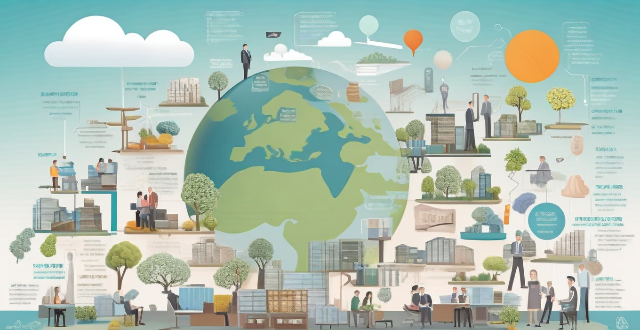
What is the importance of international cooperation in addressing climate change ?
International cooperation is crucial in addressing the global challenge of climate change. It enables shared responsibility, economic efficiency, political will, global impact, innovation and technology transfer, and strengthening multilateralism. By working together through international organizations and treaties, countries can take decisive action on climate change and create a sustainable future for all.
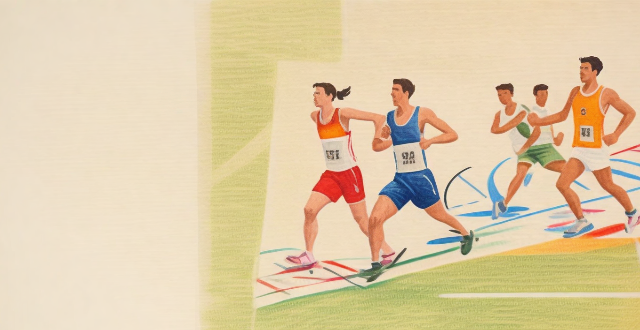
What are some examples of sports events that have promoted international peace ?
This article discusses the role of sports events in promoting international peace and understanding. It highlights the Olympic Games and the FIFA World Cup as two major sporting events that have brought together athletes from around the world to compete in a spirit of friendship, solidarity, and fair play. The article also mentions other events like the Peace and Sport Forum, the United Nations Office on Sport for Development and Peace (UNOSDP), and the Commonwealth Games, which serve as platforms for cultural exchange and diplomacy between participating countries. Overall, the article emphasizes the importance of using sport as a tool for promoting peace and building bridges between nations.

How do immigration policies influence international relations ?
Immigration policies have a significant impact on international relations, affecting economic partnerships, diplomatic ties, and cultural exchange. These policies can attract highly skilled workers, boost innovation, and enhance trade relationships, but they can also lead to job market issues and social tensions. Cultural diversification from immigration can improve mutual understanding and respect between nations, while restrictive policies can hinder the movement of diplomatic personnel. A country's approach to refugees and asylum seekers can influence its global standing, and the handling of refugee crises can lead to political tensions. Economic migration can cause a brain drain or be viewed as a form of development assistance. Immigration policies are a critical area of focus for international relations due to their far-reaching implications.